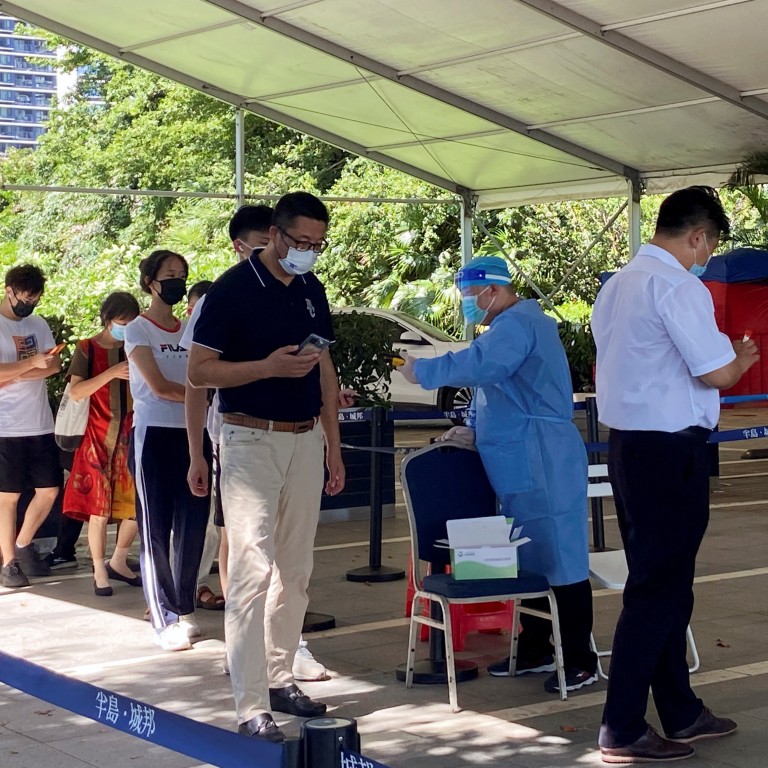
Covid-19 in China: Shenzhen tightens controls amid BA.2 outbreak
- Health authorities in southern technology hub step up testing and monitoring, saying measures ‘cannot be relaxed’
- They say all new cases detected in the city since July 15 have been identified as the highly infectious Omicron subvariant
Shenzhen, in Guangdong province, has been trying to quell an outbreak since July 15. Daily case numbers have been in single or double digits – low by global standards, but the city’s leaders have stepped up testing and monitoring in line with Beijing’s tough zero-Covid policy.
Health authorities told reporters on Sunday that all new cases detected in the city since July 15 had been identified as the BA.2 subvariant and that they had been found at an early stage.
“However, as there have been multiple links across the city, there’s still the risk of community spread and prevention and control measures cannot be relaxed,” said Lin Hancheng, a Shenzhen health official.
Lin said tens of thousands of health workers had been contact tracing, while multiple rounds of citywide testing had been carried out and Covid-19 checkpoints set up.
Residents must show a negative test result from within 24 to 48 hours, depending on the area, to enter residential compounds and commercial venues or to take public transport. For many Shenzhen residents, Covid-19 testing has become part of the daily routine since March.
It is not the first time BA.2 has been detected in Shenzhen – it was also found during an outbreak in February that led to a week-long lockdown in the city in March. Authorities imposed a “slow living” policy that saw public transport shut down, multiple rounds of mass testing and residents largely forced to stay home, with only one household member allowed out every few days to buy necessities.
The outbreak was contained in a relatively short time, in contrast to the situation around the same time in financial hub Shanghai, which endured a two-month lockdown to stop the spread of the virus there.
Millions find jobs on front line of China’s Covid-19 battle
Shenzhen has been watching the situation in Hong Kong with concern. Last week, the government sent text messages to Shenzhen residents telling them to “stay alert and say no to illegal entries and products” – referring to smugglers and goods from Hong Kong.
On Sunday, officials again said there was an ongoing crackdown on illegal imports of frozen foods and using cross-border trucks to smuggle people into the mainland, and that there would be more checks on goods and shipments of unknown origin. Residents were also urged to be vigilant and report any suspicious smuggling or border-crossing activities.

.jpg?itok=H5_PTCSf&v=1700020945)